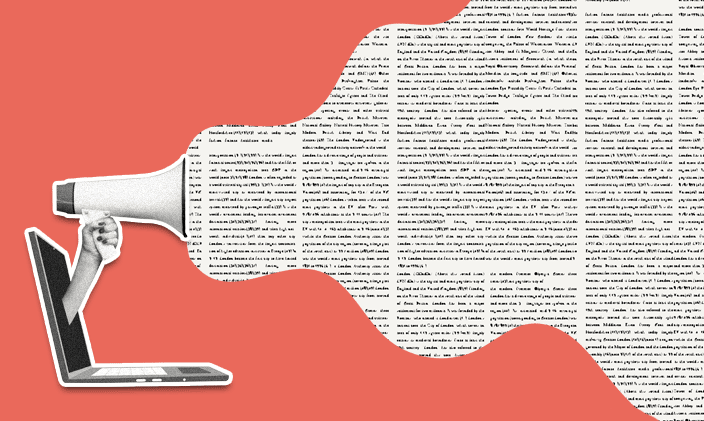University of Phoenix Survey finds US Adults Say There Are Too Many Unknowns about Old Age to Make it Worth Living to 100
By University of Phoenix
People are not willing to make positive lifestyle changes now, such as quitting smoking, to live well in later years
PHOENIX, Sept. 19, 2018 – University of Phoenix today announced that 59 percent of U.S. adults say there are too many unknowns about old age to make it worth living to 100 years old. September is Healthy Aging Month, a time dedicated to recognizing the positive aspects of growing older and making the most of golden years, and University of Phoenix is seeking to understand how U.S. adults feel about healthy aging and helping them recognize what they can do now to live well later.
“According to the U.S. National Library of Medicine, the 85 and over population is projected to more than double from 6.4 million in 2016 to 14.6 million in 2040 (a 129 percent increase)[1], and our survey findings may indicate that people are not seriously planning for and considering changes they can make now to live well as they age,” said Kelly Price Noble, DHA, program chair for the College of Health Professions at University of Phoenix. “People are generally healthier and living longer than ever before, which requires forethought and planning to realize long-term quality of life. This could mean giving up bad habits, such as smoking, or creating a financial plan that will sustain you through your later years.”
U.S. adults indicated that, if certain variables were met, they would like to live to 100. These include:
- If I were guaranteed to be of sound body and mind – 85 percent
- If my spouse, partner and/or loved ones were still alive – 79 percent
- If I didn’t physically look 100 years old – 71 percent
The Disconnect: Lifestyle Changes US Adults Are Not Willing to Make to Live to 100
Despite saying that they would be willing to live to 100, many people are unwilling to take steps toward maintaining a healthy lifestyle. People note that they would not do the following now to prepare for living longer:
- Quit smoking – 81 percent
- Go back to school/pursue more education to keep the mind active – 77 percent
- Start saving money for more later in life care – 45 percent
- Stay in contact with family/friends to maintain strong relationships – 48 percent
- Maintain a healthy sleep schedule – 45 percent
- Exercise more often – 38 percent
- Eat healthier – 36 percent
While some people say they are not willing to make some of the lifestyle changes listed above, were they to live to be 100, they would be concerned about various quality of life aspects that correlate to positive lifestyle changes. Top concerns include:
- Physical health (i.e. having a strong, functional body, and the ability to perform daily activities) – 86 percent strongly/somewhat concerned
- Mental health (i.e. good emotional and psychological wellbeing) – 82 percent strongly/somewhat concerned
- Financial health (i.e. having enough income to pay for regular or other expenses) – 82 percent strongly/somewhat concerned
“People are looking for guarantees but may not be willing to make changes, such as pursuing continued education to keep the mind sharp,” said Dr. Price Noble. “Be proactive and take advantage of opportunities that exist to educate yourself, especially while you are healthy and well. Also, for those interested in pursuing education on the subject, University of Phoenix offers a Bachelor of Science in Health Administration with courses in lifespan management, as well as a Master of Health Administration with relevant course materials.”
Dr. Price Noble’s Tips for Living Well at 100
- Understand government healthcare programs. Take time to learn more about changes in the affordable health care program and what they mean for you. This will help you understand what programs you may benefit from and where there may be gaps.
- Check the pulse on your financial health. Ensure you will have the financial resources you need for long-term care by becoming proactive, today. A good rule of thumb is to pay yourself first. Forgoing a few luxuries now can mean financial security down the road.
- Communicate your needs and wishes with family and loved ones. Regardless of your age now, develop a care plan and share it. This could mean creating a healthcare Power of Attorney to ensure that a loved one is able to make decisions for you if you are not of sound body and mind. Make sure your family and friends understand your preferences well in advance of a healthcare crisis occurring.
- Invest in your intellectual and emotional quality of life. Visualize your golden years and make time for the things that are important to you, including spending time with loved ones, pursuing education or volunteering, for example. Maintaining curiosity about the world and being open to learning new things will keep your mind sharp.
- Maintain a healthy diet and lifestyle. It is important to maintain a healthy lifestyle throughout your life, not just as you get older. The choices you make today play a role in the quality of your life in the future. Taking care of your body also means taking care of your mental wellness, including activities that engage your mind in a positive way.
To view a visual representation of the data, click here.
Survey Methodology
This survey was conducted online within the United States by The Harris Poll on behalf of University of Phoenix on Aug. 14-16, 2018, among 2,022 US adults aged 18 and older. Figures for gender, age, race/ethnicity, household income, investable assets, education, household size, employment status, marital status, and region were weighted where necessary to bring them into line with their actual proportions in the population. For complete survey methodology, please contact Amanda Barchilon.
About University of Phoenix®
University of Phoenix is innovating to help working adults move efficiently from education to careers in a rapidly changing world. Flexible schedules, relevant and engaging courses, and interactive learning can help students more effectively pursue career and personal aspirations while balancing their busy lives. University of Phoenix serves a diverse student population, offering associate, bachelor’s, master’s and doctoral degree programs from campuses and learning centers across the U.S. as well as online throughout the world. For more information, visit phoenix.edu


